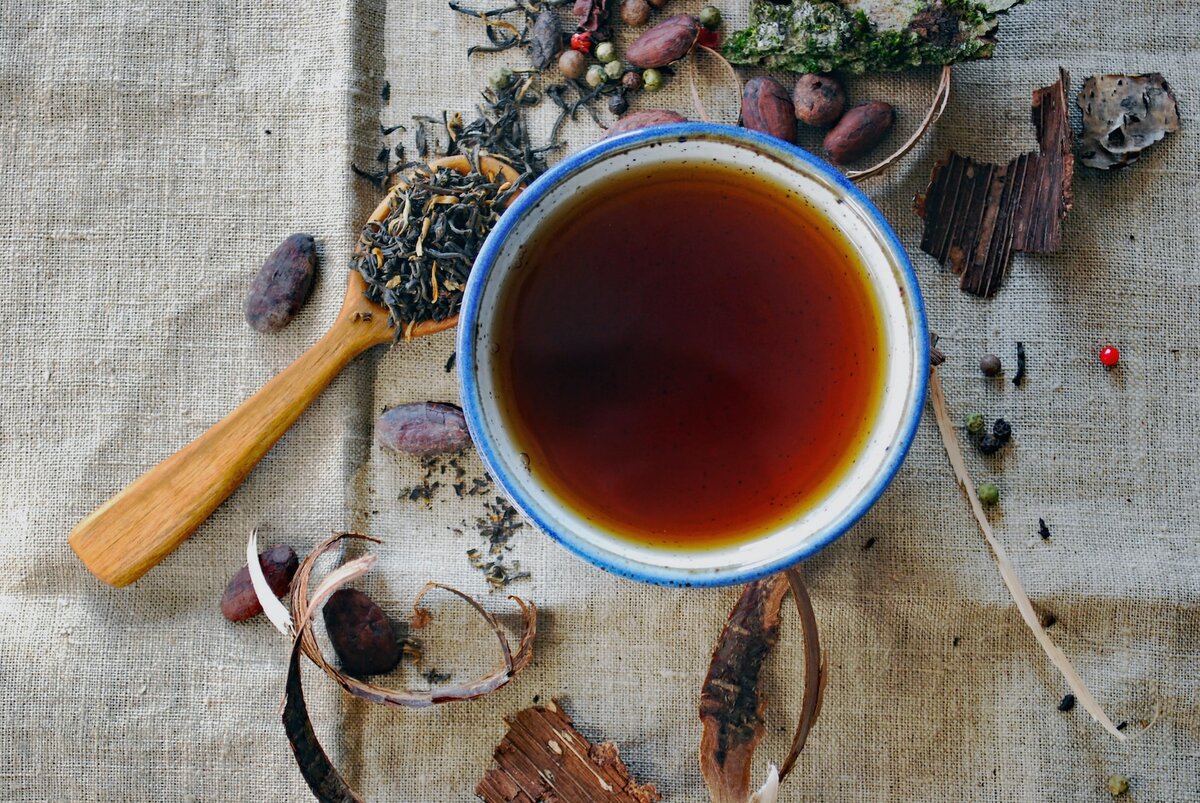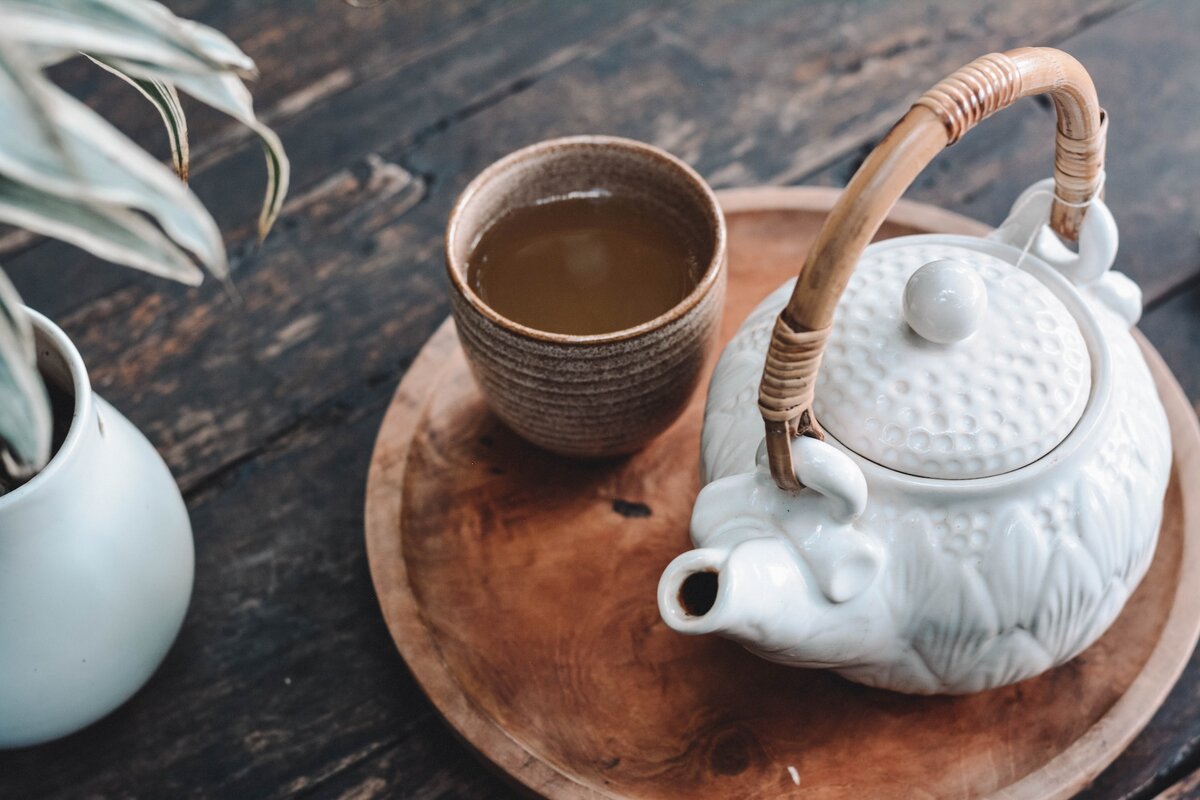Borage, also known as starflower, has a history as colorful as its striking blue blossoms. Native to the Mediterranean region, this herb has woven its way through ancient Greek and Roman cultures, celebrated for its healing properties and culinary uses. Historically, borage was recognized for bringing comfort and joy to the heart, which may be why its leaves and flowers have been used in traditional herbal remedies for centuries. Exploring the borage tea benefits, we’re not just enjoying a warm drink, but also partaking in a rich legacy that dates back thousands of years.
On this page:
Uncovering the Borage Tea Benefits: A Comprehensive Look
Borage tea, with its light cucumber-like flavor, is more than just a refreshing beverage. This herbal tea, made from the leaves and flowers of the borage plant, boasts a variety of benefits that can contribute to your overall health.
One of the most notable advantages of borage tea is its high content of gamma-linolenic acid (GLA), a type of Omega-6 fatty acid that plays a crucial role in reducing inflammation. Regular consumption of borage tea may help alleviate symptoms associated with inflammatory conditions, such as rheumatoid arthritis and atopic dermatitis.
Borage tea is also celebrated for its potential to boost respiratory health. The tea’s anti-inflammatory properties can soothe sore throats and relieve respiratory conditions, making it a go-to choice for those battling colds or congestion.
For those looking for stress relief, borage tea can be a natural ally. It is believed to have mild sedative effects, which can help calm the nerves and promote a sense of relaxation. This makes borage tea an excellent option for unwinding after a long day or for helping to reduce anxiety.
Borage tea contains essential minerals like calcium, potassium, and magnesium. These minerals are vital for maintaining bone density, regulating heart rhythm, and ensuring proper muscle function. By incorporating borage tea into your diet, you’re not only enjoying a soothing beverage but also fortifying your body with essential nutrients.
The tea has been traditionally used to stimulate adrenal function, which can help your body manage stress and fatigue. Whether you’re looking to boost your energy levels or maintain a balanced mood, the regular consumption of borage tea may offer some support.
How to Make Borage Tea: A Detailed Brewing Guide
To understand how to make borage tea, start by gathering fresh borage leaves. If fresh ones aren’t available, dried borage leaves will work too. For each cup of tea, you’ll need about one to two teaspoons of dried borage or a handful of fresh leaves.

Begin by boiling water. It’s important not to overlook water quality—filtered or spring water can enhance the flavor of the tea. Once the water reaches a rolling boil, let it cool for a minute or two. Boiling water can scorch the leaves, leading to a bitter taste.
Place your borage leaves in a tea infuser or teapot. If you’re using a teapot, it might be handy to have a strainer for pouring. Pour the hot water over the borage leaves, making sure they are fully submerged. This will ensure that the water absorbs the leaves’ flavor and beneficial properties.
Allow the tea to steep. For dried leaves, steep for about 5 to 10 minutes. Fresh leaves may need a bit more time, around 10 to 15 minutes, as they are less concentrated. Steeping time can be adjusted according to personal taste—longer for a stronger tea, shorter for a milder flavor.
After steeping, remove the leaves by lifting out the infuser or pouring the tea through a strainer. The resulting liquid should have a light green or yellow hue. It’s now ready to drink. If desired, add a sweetener like honey or a slice of lemon for an extra zing. However, try the tea plain first to appreciate the subtle flavors of borage.
Enjoying borage tea is about finding the right balance. It’s worth noting that the flavor is unique, with a mild cucumber-like freshness. Experimenting with steeping times and leaf quantities will help you brew a cup that suits your taste, while also allowing you to enjoy the soothing and refreshing qualities of borage tea.
Navigating the Potential Side Effects of Borage Tea
While borage tea is celebrated for its impressive health benefits, it’s also important to be aware of its potential side effects. Borage contains small amounts of pyrrolizidine alkaloids (PAs), substances that, if consumed in large quantities over a prolonged period, can harm the liver. This is particularly a concern for individuals with existing liver conditions, who should avoid borage products altogether.
Borage can also act as a diuretic, promoting increased urine output. While this may be beneficial in some cases, it can also lead to dehydration if one is not consuming adequate fluids. It’s crucial to balance your intake of borage tea with plenty of water throughout the day.
Pregnant and breastfeeding women should steer clear of borage tea, as the effects on fetal development and breast milk are not well studied. Borage may also alter blood clotting due to its gamma-linolenic acid content, so those taking blood-thinning medications or preparing for surgery should consult with a healthcare provider before including borage tea in their routine.
Some people might experience mild digestive upset, such as bloating or gas, after drinking borage tea. If you notice these or any allergic reactions, such as hives or swelling, it’s best to discontinue use and talk to a healthcare professional.
Moderation is key. Enjoying borage tea occasionally and in reasonable quantities can help minimize the risk of side effects, allowing you to reap the potential benefits without undue concern. Always consider speaking with a healthcare provider before integrating herbal teas like borage into your wellness plan, especially if you have pre-existing health conditions or take medication.
Enhancing Your Borage Tea Experience with Tips and Tricks
To elevate the enjoyment of borage tea, consider the ambiance and complementary flavors. A calming environment enhances the herbal tea experience. Soft background music and dim lighting can set a relaxing mood.

Experiment with temperature. While borage tea is commonly enjoyed hot, it can be refreshing when served cold on warmer days. For a chilled version, brew the tea as usual, let it cool, and then refrigerate it. Adding ice cubes and a sprig of fresh mint or a slice of lemon can add a touch of elegance and a zesty flavor profile.
Personalize the strength according to taste preferences. For a milder tea, steep for a shorter time. Those who prefer a stronger brew might steep the leaves for a few minutes longer. Paying attention to steeping time ensures a personalized taste that caters to individual preferences.
Pairing borage tea with light snacks can complement its flavor. Consider serving it with fruit slices, nuts, or mild cheeses. These pairings not only enhance the taste but also turn tea time into a more satisfying and nourishing experience.
Explore the addition of honey or agave syrup for those who prefer a hint of sweetness. These natural sweeteners blend well with borage tea’s flavor without overpowering it. The goal is to accentuate the tea’s natural essence, not to mask it.
Addressing Common Questions About Borage Tea
People often wonder if borage tea is safe to drink every day. Generally, in moderate amounts, borage tea can be a healthy addition to your daily routine. However, because of its active compounds, like pyrrolizidine alkaloids, which can harm the liver in high doses, it’s best to enjoy it occasionally rather than daily.
Another frequent question is whether borage tea can help with anxiety. While borage itself has been historically used to uplift the spirits and promote a sense of well-being, there’s limited scientific evidence on borage tea as a treatment for anxiety. Nonetheless, many find the act of sipping warm tea to be quite relaxing.
Some are curious about the taste of borage tea. It has a mild flavor that can be described as slightly cucumber-like, making it a pleasant, soothing drink that can easily be paired with honey or lemon to enhance its taste.
People with certain medical conditions or those who are pregnant often ask if they can drink borage tea. Due to the potential effects on the liver and the risk of harm to the fetus, it is generally advised that these individuals avoid borage tea or consult with a healthcare provider before including it in their diet.
Beyond the Cup The Impact of Borage Tea on Overall Wellness
Borage tea, with its light cucumber taste, is more than just a refreshing drink. It’s a beverage that may play a role in overall wellness, supporting both physical and mental health. When consumed regularly, borage tea is thought to provide anti-inflammatory benefits due to its gamma-linolenic acid (GLA) content, a type of Omega-6 fatty acid. This can be particularly beneficial for individuals dealing with swelling and discomfort associated with conditions like arthritis.
In terms of mental health, borage tea is believed to influence stress levels positively. It contains natural compounds that may act as mild sedatives, helping to soothe nerves and reduce anxiety. This calming effect can lead to better sleep patterns and improved mood regulation, contributing to a more balanced emotional state.
Borage tea is packed with antioxidants, which are vital in fighting free radicals in the body. These antioxidants help protect cells from damage, potentially lowering the risk of chronic diseases and supporting overall immune function. The presence of vitamins, such as vitamin C and vitamin A, in borage, also aids in fortifying the body’s defense mechanisms against common ailments.
While borage tea has these potential health benefits, it should be consumed in moderation. Like all herbal teas, it works best as part of a balanced lifestyle that includes a varied diet and regular physical activity. Integrating borage tea into your routine can be a simple yet effective way to enhance your daily health practices and promote a sense of well-being.
Embracing Borage Tea for Natural Health
As we come to the end of our exploration of borage tea, it’s clear that this herbal infusion offers more than just a soothing cup. Its origins rooted in tradition, borage tea emerges as a multifaceted beverage with a variety of health benefits. Whether you’re looking to reduce stress, improve skin health, or seek a natural wellness boost, borage tea could be a valuable addition to your routine. While being mindful of its potential side effects, incorporating the tips and tricks we’ve shared can elevate your tea-drinking experience. Remember to consult with a healthcare provider if you have any concerns. Embracing borage tea is not just about enjoying a herbal drink; it’s about making a conscious choice towards natural health and well-being.
